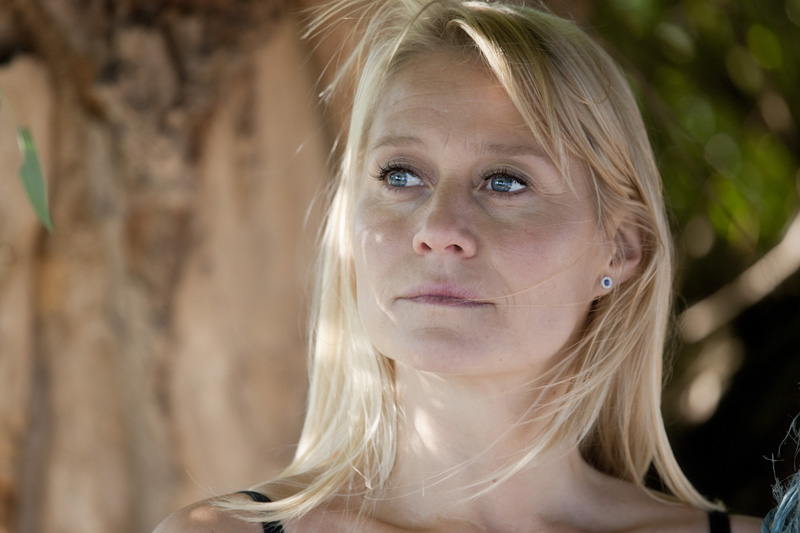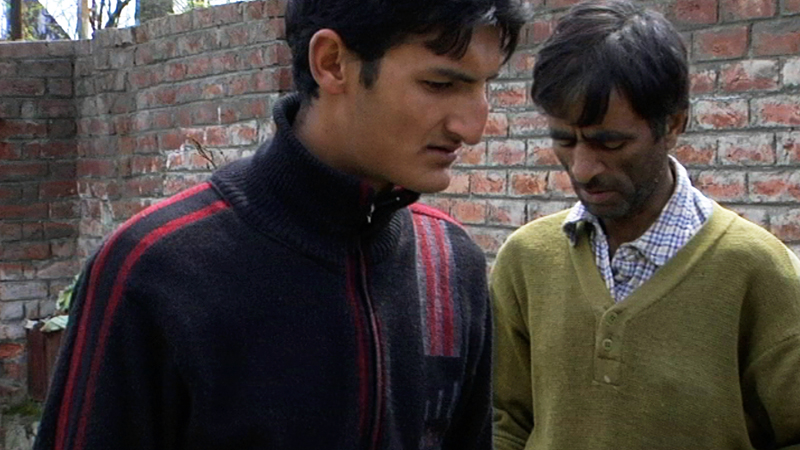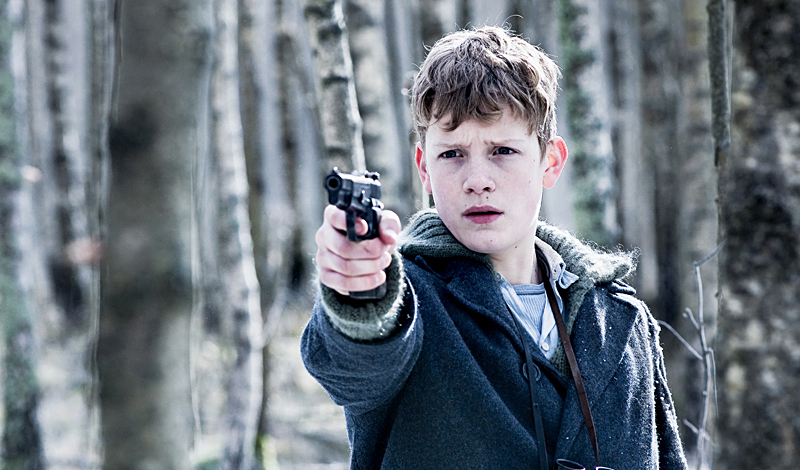Katie Jarvis, who makes her acting debut as a rabid teenager in writer/director Andrea Arnold’s Fish Tank, was discovered on an English railway station platform, yelling at her boyfriend. Whether Jarvis is a natural-born actress or simply playing herself as Mia, a foul-mouthed, 15-year-old child of the Essex projects with a gift for raising the roof wherever she goes, she gives a ferociously persuasive performance in an otherwise routine tale of domestic disaster.
Neglected and abused in equal measure by a ridiculously young mother (the excellent Kierston Wareing) who could give Mo’Nique’s monster parent in Precious a run for her money, Mia runs wild in her down-at-the-heels neighborhood, playing hooky from school, head-butting girlfriends, and scavenging alcohol wherever she can. Doggedly pursued by Arnold’s handheld camera, this unguided missile of a girl walks or runs in aimless circles, a ball of furious energy fueled by the defiance that still animates the young and lonely before despair sets in. Jarvis has a broad, capable back and a cocky assurance belied at every turn by her faun eyes and expressive mouth. Dressed in old sweats, with her hair caught in a careless pony tail, Mia projects an unsettling brew of brute force, nascent sexuality, and heart-stopping vulnerability—which proves a lethal cocktail for all parties when her mother’s latest boyfriend, Connor (Hunger‘s Michael Fassbender), unexpectedly moves into their tiny house.
An affable, twinkly, and mostly shirtless hunk, Connor is adept with children, carrying Mia and her younger sister, Tyler (the remarkably poised Rebecca Griffiths), upstairs to their beds when they fall asleep. Inviting them along, against their mother’s wishes, on a country outing that promises a rare interlude of something like fun in the girls’ lives, Connor is instinctively solicitous, as well as secretive about his life in ways that would set off alarm bells in a more-cared-for child than Mia, whose first experience of warm tenderness allows her to let down her guard. That their relationship quickly turns creepy is due to a mutual (but unequal) inability to draw boundaries. If Mia is someone you want to take in your lap one minute, and avoid in a dark alley the next, the feckless Connor is someone you want to call to account.
Like her Scottish counterpart, Lynne Ramsay (Ratcatcher, Morvern Callar), Arnold is a talented exponent of the new British miserabilism—vérité kitchen-sink drama, trimmed with visual poetry and a visceral candor about sex that’s absent in the primly chaste films of Mike Leigh or Ken Loach. This is unusual coming from a woman filmmaker, as is Arnold’s preoccupation with voyeurism, a device deployed less organically in Fish Tank than in her strikingly original Red Road (2006), in which a woman abuses her closed-circuit-television police camera to spy on a stranger with whom she’s obsessed. Here, too, when Connor lends Mia a camera to help prepare her for an audition in her one passion, the breakdancing she performs with more zeal than talent, she ends up using it to spy on him.
Also like Ramsay, Arnold is lyrically attuned to the jolie-laide beauty of destroyed urban landscapes. Only in her case she can’t resist the overkill of gussying up a shot with noir-romantic symbols—a white horse chained in a junkyard, a fish out of water gasping for breath, a tree rustling in livid yellow light in anticipation of disaster. And indeed, the consequences of Mia’s surrender to Connor feel more contrived than inherently dramatic, and from here on the movie turns stiff and pat, leaving us manipulated by Arnold’s desire to give her hapless heroine the worst life she can think of, followed by a great escape.
That might be all right for another kind of life than Mia’s, but it’s jarring in a movie so insistent, up to this point, on sidestepping false uplift. What’s best about Fish Tank—Arnold’s gift for atmospherically evoking what it feels like to inhabit an unsteady, frequently hostile, and arbitrary world, and to respond in kind—ends up fatally undermined by a denouement so hammy, it invokes a giggle rather than a tear.








